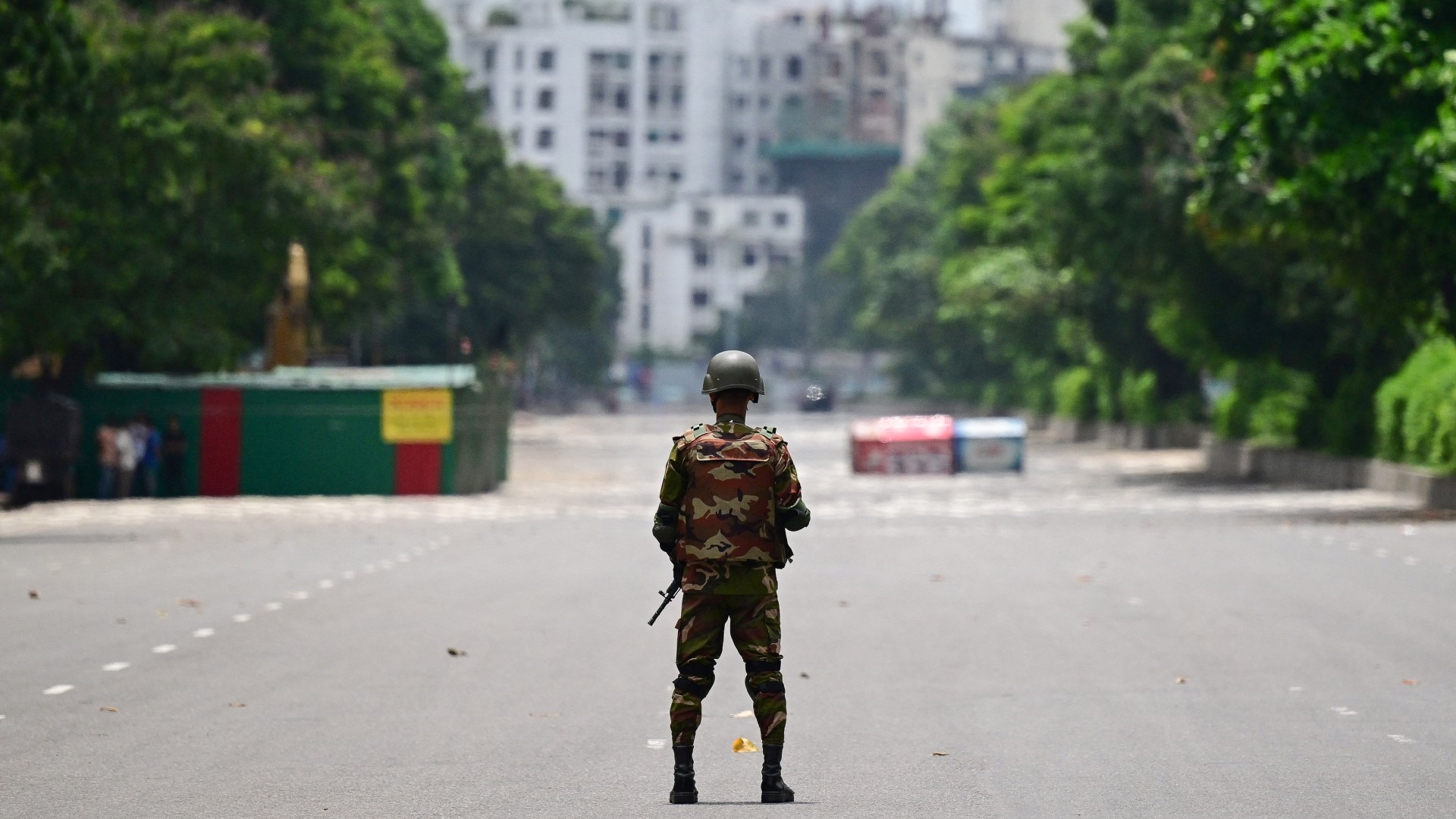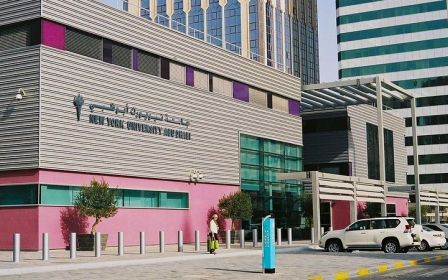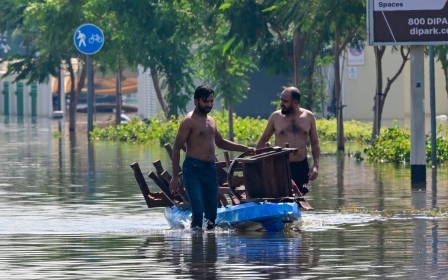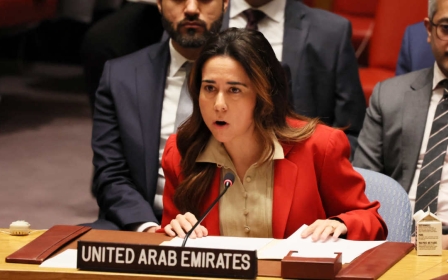UAE gives life sentences to three Bangladeshi protesters

The United Arab Emirates has imprisoned over 50 Bangladeshis, three of whom have been given life sentences, for protesting against the government of their home country.
On Monday, the Abu Dhabi Federal Court of Appeal handed out the three life sentences, as well as 10-year prison terms for 53 others, for participating in demonstrations.
Those convicted will be deported to Bangladesh at the end of their sentences, according to Emirati news agency WAM.
The demonstrators were protesting against a Bangladesh High Court verdict that was set to reintroduce a quota system in the country, reserving 30 percent of government jobs for the descendants of veterans who fought in the country's independence war in 1971.
Mass protests against the quota system, led by students who believed the move to be anti-meritocratic, were violently cracked down on by authorities in Bangladesh last week, with at least 138 protesters killed. More than half of those deaths occurred in the capital Dhaka.
New MEE newsletter: Jerusalem Dispatch
Sign up to get the latest insights and analysis on Israel-Palestine, alongside Turkey Unpacked and other MEE newsletters
Over the weekend, Bangladesh's Supreme Court scrapped the High Court verdict and recommended that only five percent of jobs should be set aside for the relatives of veterans.
Videos emerged on Friday of scores of protesters in the UAE, including in Dubai, rallying against Bangladesh's government. Dozens of Bangladeshi nationals were immediately arrested.
Unauthorised protests are banned in UAE, a country where freedom of expression is severely restricted.
The Emirates' attorney general ordered an immediate investigation into the protests on Friday.
Anwar Gargash, adviser to the UAE presidency, said: "The Attorney General's decision to refer the protesters to trial is within the legal framework to maintain the state model and prevent the export of other countries' problems to the UAE."
The demonstrators were charged with deliberately disrupting transportation, inciting protests, rioting, causing damage to property and sharing content about the demonstrations online, according to WAM.
"This just shows how quick the UAE authorities are to stamp on any form of freedom of expression," James Lynch, co-founder of Fair Square, which campaigns for workers' rights in the Gulf, told Middle East Eye.
He said that all speech was cracked down on, whether it was concerned with UAE domestic politics, foreign policy issues related to the Emirates, like on Israel and Palestine, or issues where the UAE's role was not significant, like in Bangladesh.
"Simply the idea of protest, of criticism and dissent, [is] discouraged," said Lynch. "Migrant workers are heavily restricted from expressing themselves in any form."
Bangladeshis reportedly make up about seven percent of the UAE's population. They are the third-largest immigrant community in the Emirates, after Indians and Pakistanis.
The vast majority of the UAE's population of 9.2 million is made up of migrants, with only around 10 percent being Emirati citizens.
Elsewhere, in Jordan, Bangladeshi women took to the streets to protest against the police crackdown in their home country.
In one video posted to social media, a demonstrator said: "In Bangladesh the police hurt people but in Jordan they are standing next to us. How beautiful; this should be the way.”
Middle East Eye delivers independent and unrivalled coverage and analysis of the Middle East, North Africa and beyond. To learn more about republishing this content and the associated fees, please fill out this form. More about MEE can be found here.




